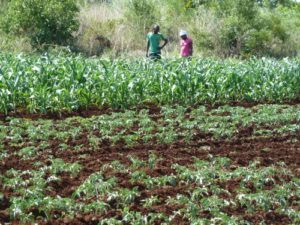
This report presents an assessment of Zimbabwe’s agriculture sector disaster risk and management capacity. The findings indicate that Zimbabwe is highly exposed to agricultural risks and has limited capacity to manage risk at various levels. The report shows that disaster-related shocks along Zimbabwe’s agricultural supply chains directly translate to volatility in agricultural GDP. Such shocks have a substantial impact on economic growth, food security, and fiscal balance.
When catastrophic disasters occur, the economy absorbs the shocks, without benefiting from any instruments that transfer the risk to markets and coping ability. The increasing prevalence of “shock-recovery-shock” cycles impairs Zimbabwe’s ability to plan and pursue a sustainable development path.
The findings presented here confirm that it is highly pertinent for Zimbabwe to strengthen the capacity to manage risk at various levels, from the smallholder farmer to other participants along the supply chain, to consumers (who require a reliable, safe food supply), and ultimately to the government to manage natural disasters.
The assessment provides the following evidence on sources of risks and plausible risk management solutions. It is our hope that the report contributes to action by the Government of Zimbabwe to adopt a proactive and integrated risk management strategy appropriate to the current structure of the agricultural sector.
Post published in: Agriculture


Where can i find this report?